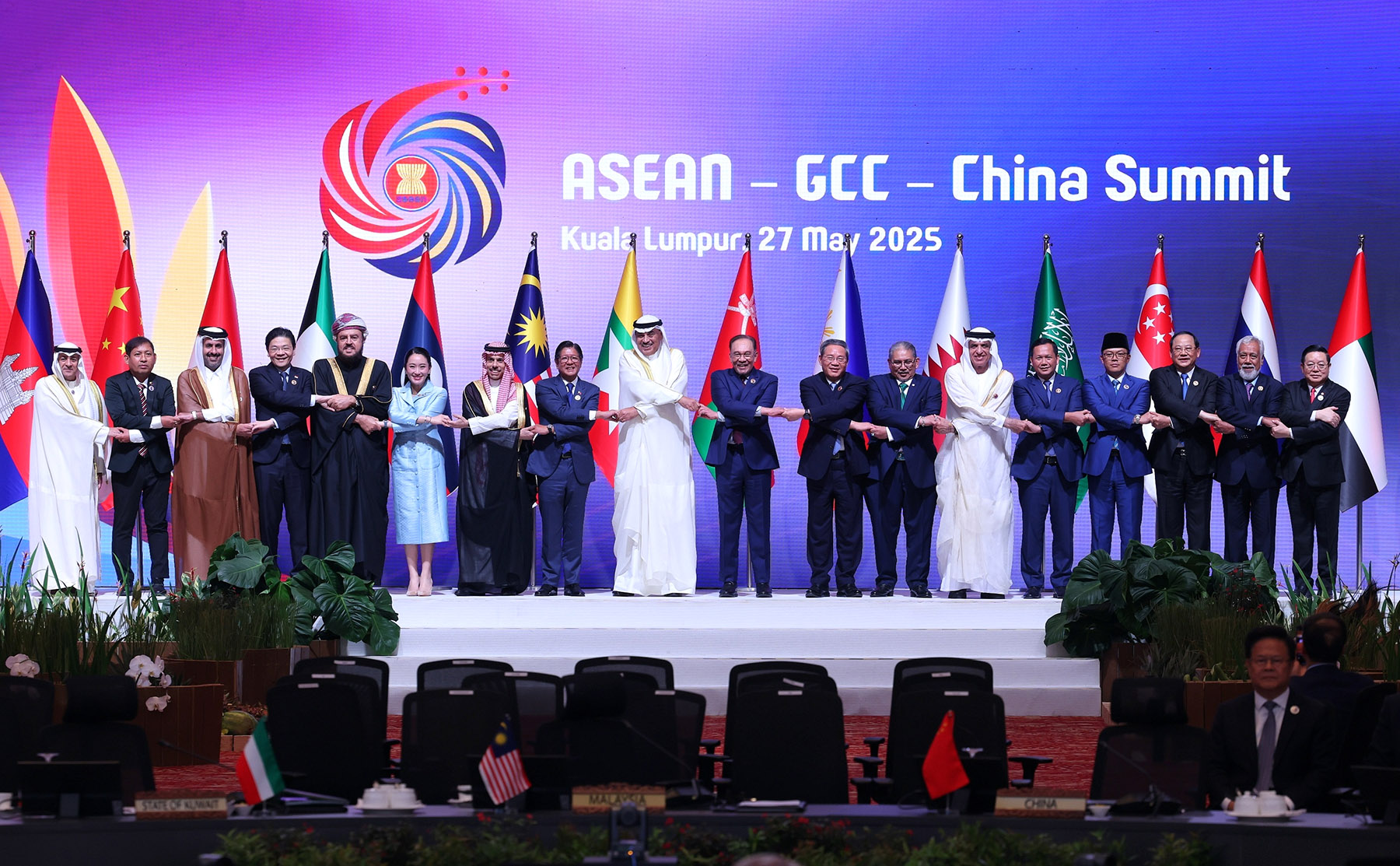Li tells economic forum that trio’s future is ‘boundless like oceans’

Premier Li Qiang called for further deepening strategic alignment and expanding regional opening-up at a trilateral summit among China, the Association of Southeast Asian Nations (ASEAN), and the Gulf Cooperation Council (GCC), to address new challenges and fully unleash the potential of open development.
Speaking on May 27 at the opening of the ASEAN-GCC-China Economic Forum, held in Kuala Lumpur, Li described the future of trilateral cooperation as “boundless like the oceans”.
At a time when global political dynamics are becoming increasingly complex and global economic growth remains sluggish, Li described the trilateral summit as a significant innovation in regional economic collaboration and a response to the call of the times.
He called for closer connectivity and cooperation among all parties to promote their respective economic prosperity and contribute to peace and development in Asia and beyond, urging efforts to expand economic engagement and bolster resilience amid global trade volatility.
As three major economic entities with significant influence in Asia, the combined economic output of China, ASEAN member states, and GCC economies now approaches $25 trillion, with a total population of over 2 billion. China is the GCC’s largest trading partner, and it is also ASEAN’s largest trading partner and vice versa.
Li — who returned to Beijing on May 28 — emphasized the need to enrich the substance of trilateral cooperation and work together to establish a model of global development that is characterized by openness across regions, cooperation across development stages, and integration across civilizations.
He reaffirmed China’s readiness to strengthen partnerships with ASEAN and the GCC by jointly formulating an action plan on high-quality Belt and Road cooperation and enhancing infrastructure connectivity.
China is also willing to expand cooperation in areas such as energy, agriculture, artificial intelligence, the digital economy, and green and low-carbon development, while promoting greater people-to-people exchanges, he added.
Themed “Synergizing Economic Opportunities Towards Shared Prosperity”, the inaugural ASEAN-GCC-China Summit was hosted by Malaysia as part of its 2025 ASEAN chairmanship.
At the economic forum, Malaysian Prime Minister Anwar Ibrahim highlighted China’s vital role as a key partner to both ASEAN and the GCC.
He praised China’s significant role in economic development, peace, stability, and the defense of international fairness and justice, while reaffirming ASEAN’s commitment to strengthening partnerships with China and the GCC to contribute to regional and global prosperity and stability.
The economic forum took place hours after the leaders from the three sides met in a historic summit, following which a joint statement was issued committing to deeper economic cooperation and free trade.
Experts said the historic trilateral meeting underscores the growing strength and solidarity among Asian countries, offering a new model for cross-regional cooperation. The partnership generates a synergistic effect, bringing new stability and momentum for growth to the Global South and an even wider impact.
“By combining technology, resources, and capital, the three parties aim to integrate industrial and supply chains, optimize regional resource allocation, and reduce dependence on single markets, thereby enhancing resilience through diversified cooperation,” said Du Lan, deputy director of the China Institute of International Studies’ Department for Asia-Pacific Studies.
“Joint infrastructure development will reinforce Asia’s connectivity, while collaboration in green energy, the digital economy, and advanced manufacturing will accelerate sustainable growth,” she added.
Chen Hong, executive director of the Asia Pacific Studies Centre at East China Normal University, said that in the face of rising unilateralism and protectionism, the three sides advocate openness, inclusiveness, and non-confrontation, sending a strong signal of support for free trade and open cooperation.
Contact the writer at zhaojia@chinadaily.com.cn


